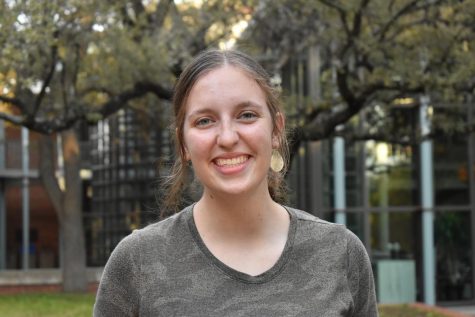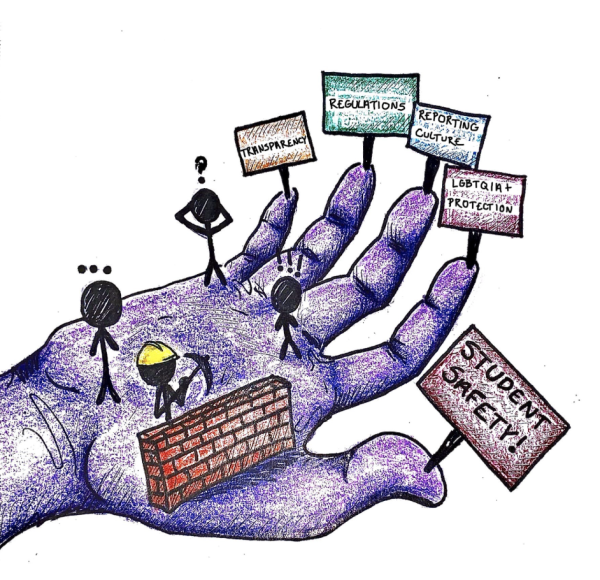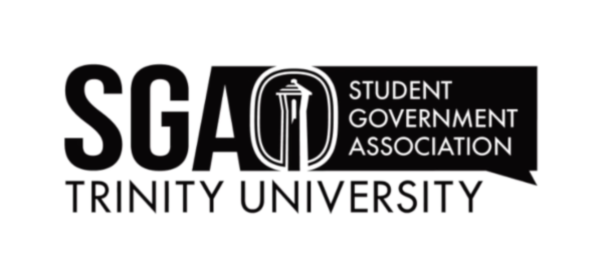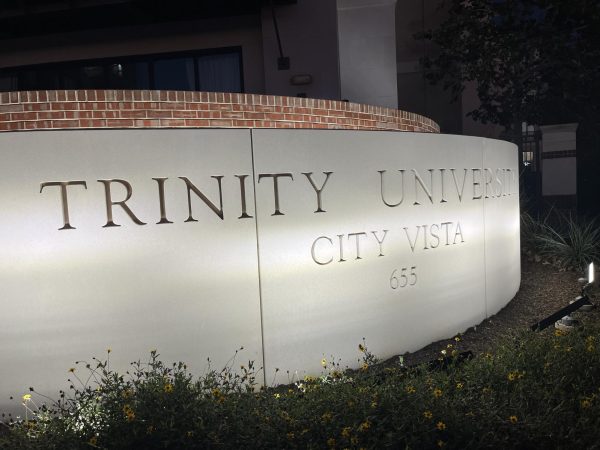EcoAllies’ Divest Trinity movement continues
Initiative persists with goals after initial rejection from Board of Trustees
Last semester, EcoAllies presented its resolution to divest fossil fuels from Trinity’s endowment to the Student Government Association (SGA). With the exception of one no vote and one abstention, SGA voted to support the resolution focused on informing the Board of Trustees of the reasons why Trinity should divest from fossil fuels.
SGA’s support allowed the resolution to be passed on to the Board, who then responded to SGA. After that, SGA sent the feedback provided by the Board to Divest Trinity, the EcoAllies sub-committee at the helm of the resolution.
“The Trustees believe that in most cases, divestment from the university’s endowment is an ineffective means of exercising investment responsibility, especially in comparison to the value of encouraging the university community to engage in education, research and debate,” the trustees wrote in the board’s response to SGA.
In essence, this means that the trustees rejected the resolution proposed by Divest Trinity via SGA, citing an ineffective investment strategy for the university. Kenneth Nelson, senior political science and economics double-major and Divest Trinity member countered the Board’s line of reasoning. Nelson contends with the idea that continued investment in fossil fuels is too risky because eventual fossil fuel regulations will rapidly diminish Trinity’s investments.
Settling for the rejection of the resolution could have a large negative impact on Trinity’s finances according to Helene Le Gall, junior environmental studies and Spanish double-major and Divest Trinity member.
“Which is why it’s so important for Trinity to begin divestment as soon as possible because we are starting to see already with this summer’s record heat waves throughout the world,” said Le Gall. “[Trinity must] begin the process of divestment so that we are not left with these valueless investments.”
In addition to this economic argument, Divest Trinity, like its parent organization, is dedicated to mitigating the effects of climate change. Audrey Germany, junior environmental studies and economics double-major and vice president of EcoAllies, explained the climate-based rationale.
“When Trinity invests in fossil fuel companies, we’re funding their extraction methods that release carbon into the atmosphere. And that’s dangerous because carbon emissions accelerate global warming,” Germany said. “[Divestment] will enforce our school stance against climate change, against all these horrible things happening to people [like] being displaced from their homes or from animals, all those experiences that we could go through if we continue our current rate of carbon emissions.”
Ultimately, Divest Trinity hopes that Trinity’s divestment from fossil fuels would spur change on a global scale. If the Board of Trustees does decide to divest, Germany pointed out, Trinity would join universities like Boston University, Harvard and the University of California state system.
“Trinity divesting might not directly prevent a company like Peabody Energy from investing in fossil fuel extraction. But what it does do is build pressure on larger companies and larger financial firms to divest,” Nelson said.
Le Gall discussed upcoming action items to address, in her words, the board’s unacceptable refusal to divest. Divest Trinity’s goal is to partner with greek life and registered student organizations including cultural organizations and club sports.
“We’re hoping that we can get the faculty senate to submit something like [a resolution], to make it very clear that [Divest Trinity] is not just a student-led movement. This is something that is supported by professors and different faculty members,” Le Gall said. “Finally we are intending on encouraging people to abstain from donating during the 1869 campaign until the board makes concrete changes to our investments.”
The 1869 Challenge is an annual, university-wide fundraising event that will be held from Wednesday, Sept. 28 at 3:33 p.m. CDT to Thursday, Sept. 29 at 10:42 p.m. CDT. Donations come from both national and global sources to support the scholarships and financial aid of current and future students. Le Gall made clear that the Divest Trinity campaign will tell participants to only withhold funds until “a change is made.”
Overall, although the Board has yet to make the change Divest Trinity proposed, the organization has and will continue to push for divestment from fossil fuels.

Hello, y'all! I'm Abby Power, and I am a sophomore news reporter from Kyle, Texas. I intend to major in Political Science, Spanish, and Global Latinx Studies....












Isabella Spangher • Sep 9, 2022 at 8:27 am
I am proud to see how Divest Trinity and Eco Allies have been working to bring change to Trinity University. I hope the Board of trustees will see how investing in fossil fuels is not only a bad financial decision due to the volatility of that market but also come to understand that continuing to support this industry is leading to environmental degradation right now.